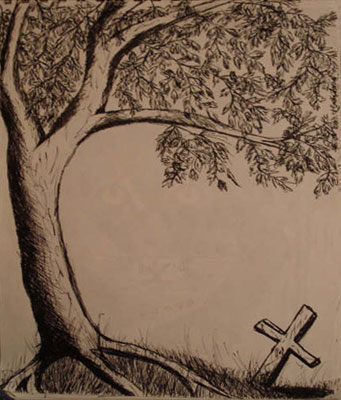All Nonfiction
- Bullying
- Books
- Academic
- Author Interviews
- Celebrity interviews
- College Articles
- College Essays
- Educator of the Year
- Heroes
- Interviews
- Memoir
- Personal Experience
- Sports
- Travel & Culture
All Opinions
- Bullying
- Current Events / Politics
- Discrimination
- Drugs / Alcohol / Smoking
- Entertainment / Celebrities
- Environment
- Love / Relationships
- Movies / Music / TV
- Pop Culture / Trends
- School / College
- Social Issues / Civics
- Spirituality / Religion
- Sports / Hobbies
All Hot Topics
- Bullying
- Community Service
- Environment
- Health
- Letters to the Editor
- Pride & Prejudice
- What Matters
- Back
Summer Guide
- Program Links
- Program Reviews
- Back
College Guide
- College Links
- College Reviews
- College Essays
- College Articles
- Back
“Secular God” Is an Oxymoron, and “Religious Government” Should Be
Louisiana’s public schools are just the latest flashpoint in the nationwide debate over the concept of God in connection with the national motto (“In God We Trust”) and the Establishment Clause. But the issue isn’t even Louisiana’s school system, or the motto. It runs deeper than that.
In Louisiana, a law was recently passed requiring public schools to display the motto “In God We Trust.” The public schools are run with taxpayer money, calling into play the Establishment Clause of the 1st Amendment: “Congress shall make no law respecting an establishment of religion, or prohibiting the free exercise thereof.”
–––––
It seems obvious at first glance that the display of “In God We Trust” in public schools would violate this clause. However, it’s likely that the Supreme Court would uphold this law, as they have with similar laws in the past. They have stated that religion has become a part of tradition in the United States, and that it’s impossible to separate the religion from that tradition. Therefore, they say, this flavor of religion that has been allowed to blend with and into American society is secular.
To break down this issue, one needs to understand that there are three main monotheistic religions with a similar origin: Christianity, Islam, and Judaism. Islam and Judaism have always been very much in the minority in the United States, and Christianity has always been the norm. However, the Founding Fathers wrote the Establishment Clause with the intention of keeping any religion, even Christianity, from being sponsored by the government.
The leading interpretation of the Establishment Clause is that the government cannot support one religion more than others (“respecting an establishment of religion”) or less than others (“prohibiting the free exercise thereof.”) So if one recognizes the invocation by the government as being of the Christian God, the government is endorsing Christianity, making it a “state-sanctioned” religion, and violating the Constitution.
–––––
The problem is hard to solve because it started a relatively long time ago, in 1861. In that year, Reverend M. R. Watkinson wrote a letter to Treasury Secretary Salmon P. Chase. In the letter, he said “One fact touching our currency has hitherto been seriously overlooked. I mean the recognition of the Almighty God in some form on our coins. You are probably a Christian… Would not the antiquaries of succeeding centuries rightly reason from our [lack of mention of God] that we were a heathen nation?”
In 1864, Congress passed a law allowing the use of the motto “In God We Trust” on currency. Thus the seeds were planted for the vine that has devoured our nation.
In 1956, during the Cold War, Congress passed another law making “In God We Trust” the national motto of the United States. This was done shortly after “Under God” was added to the Pledge of Allegiance, in a push to distinguish the country from the Soviet concept of atheistic communism.
–––––
Here, logic comes into play. If the motto was created to distance our nation from atheism, does that not support atheism less than other concepts of religion? And if the motto was created to replace atheism with Christianity, does that not support Christianity more than other religions?
These are two questions that must be answered by the courts, and soon, before America’s spiral towards a theocracy goes past the point of no return.

Similar Articles
JOIN THE DISCUSSION
This article has 0 comments.

I wrote this piece after seeing the news about the new law in Louisiana which I talk about in the article. This article is just my poinion, but I hope it inspires you to think about your own opinion. Maybe write abut it, too!